No more Mongol-Russian style empire: Thoughts on the war in Ukraine
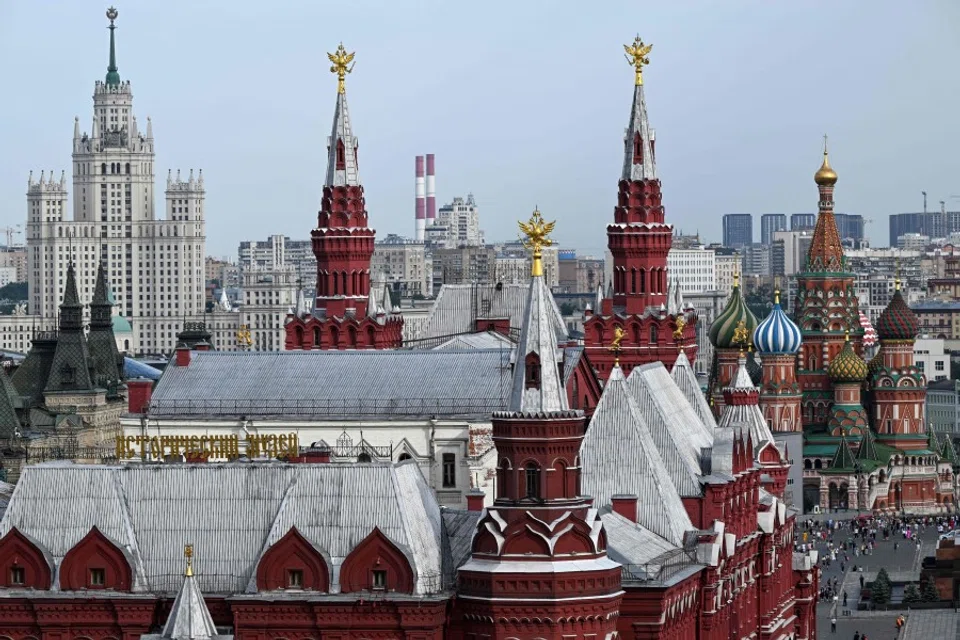
The war in Ukraine heralds the demise of the Mongol-Russian style of empire. Due to Putin's imprudence in waging war, Russia dropped from a second-tier country to a third-tier one, losing its status as a major power. While history is sometimes like a roulette wheel offering second chances, it is not always so - Russia has lost its chance to rise again.
Some say Russia started the war because Putin was misled by wrong intelligence. But the key reason is really that in this fast-moving world today driven by technology, the Mongol-Russian style of empire has lost its edge and relevance.
Mongol-Russian empire?
Russia most resembles the Mongol empire of the past, being deeply influenced by it and even being closely related by blood.
The Mongol-Russian style empire could be defined as a dominating, rapacious empire upheld by violence, especially unruly violence, and exhibiting three prominent characteristics.
First, it uses unruly violence as a regular means of resolving international disputes. While violence is common and sometimes necessary in political or social governance, rules have been set for its use under a modern lawful democratic system. Unlike in ancient times, the use of violence now comes under heavy restrictions and is "predictable". Such an evolution also applies to international relations.
But why is the Mongol-Russian empire more violent, more dominating and more rapacious than other politically similar ancient empires, such as the ancient Chinese empire?
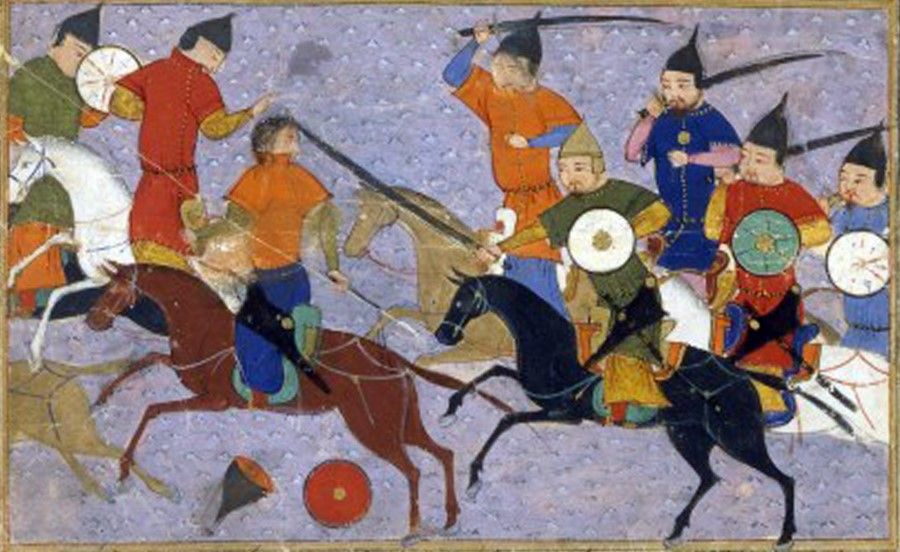
Second, it is dominating because the aim is to conquer rather than negotiate. Third, it is rapacious because it seeks to plunder other countries' wealth as a means to enrich itself, rather than satisfying its interests through peaceful (albeit possibly unequal) trade.
Geographical imperatives and cultural factors
Looking at it from wider political paradigms, one can say that the Mongol-Russian empire is a subset of systems that advance the rule of man (as opposed to the rule of law) and autocratic politics from the domestic arena to the global society. But why is the Mongol-Russian empire more violent, more dominating and more rapacious than other politically similar ancient empires, such as the ancient Chinese empire? Its cultural DNA and future outlook can be inferred by taking a closer look at Mongolia's unique geographical position and resulting history and culture.
First, the ancient Mongolians lacked conditions for trade, and also the awareness and tradition of using trade measures to resolve issues, which involves getting what one needs from the other side through peaceful talks. Looking at the objective environment, being classic nomads, the Mongolians' goods were too homogenous and they were not active in trading products - this is also based on my observations of the Tibetan region, which is large and sparsely populated.
... the lack of trade led to a lack of concept and spirit of trade, resulting in a lack of awareness in using trade measures to resolve issues.
Most families had dozens or over 100 yaks and other animals, and definitely did not lack production. The problem was that every household had yaks, and transport was not developed in the old days, so the yaks were hard to sell for a reasonable price, which made it difficult to get other equivalent items in exchange. So, trade in the Tibetan region was weak and manifested in its poverty.
The same applied to the Mongolians' lives - the lack of trade led to a lack of concept and spirit of trade, resulting in a lack of awareness in using trade measures to resolve issues. Of course, this is in comparison with more trade-savvy people, and not to say that Mongolians completely have no concept of trade. At the same time, this does not negate the fact that the Mongol empire opened up Eurasian trade routes.
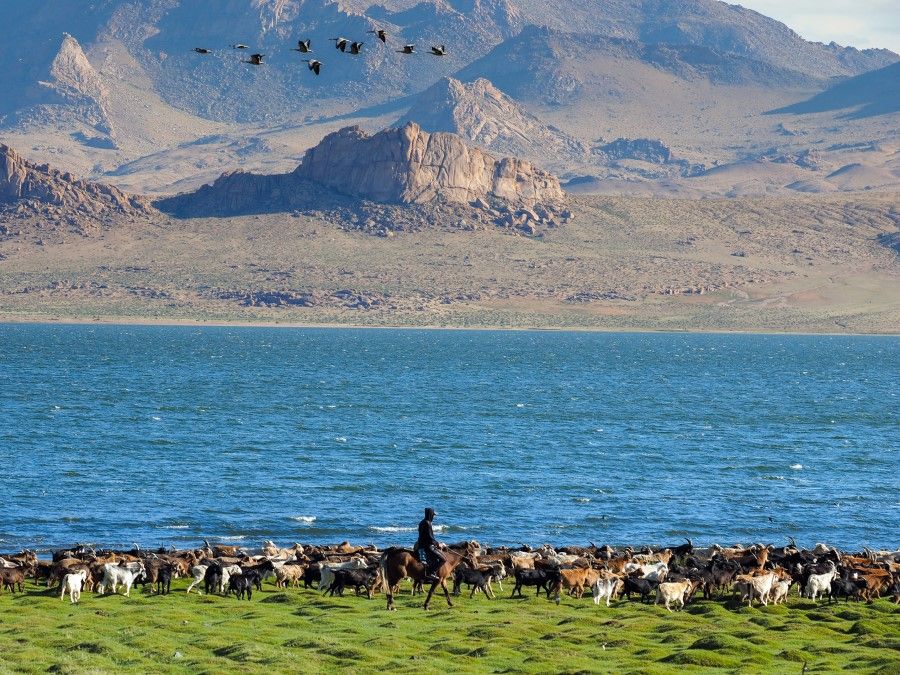
Second, the Mongol empire conquered through violence for a long time and on a large scale, and was accustomed to resolving issues through violence. Looking at The Secret History of the Mongols (《蒙古秘史》), looting, killing, massacres and genocide were common in the formation, rise and expansion of the Mongols. Besides, rule of law and democracy were not yet established in ancient times, and unruly violence was common in various countries and peoples; the rule was that victors ruled over the vanquished.
As the Greeks said in The History of the Peloponnesian War, "... it has always been law that the weaker should be subject to the stronger... as the world goes... the strong do what they can and the weak suffer what they must." But there are still differences. While unruly violence was also not uncommon in Han regions, the Han people's trade activities and awareness were far more developed than the Mongols, and they also advocated peaceful resolutions.
It was not like the Han people - after the Shang dynasty gave way to the Zhou dynasty, the Duke of Zhou suppressed violence through systems and culture.
Third, the Mongols lacked a more regulated, structured system and cultural framework, and did not establish a system and culture of advocating peace and suppressing violence. Until the Mongol empire was established, Mongolia did not have its own writing system or constitution. It was not like the Han people - after the Shang dynasty gave way to the Zhou dynasty, the Duke of Zhou suppressed violence through systems and culture.
Also, as the Mongols were engaged in war and internal strife and fighting, while the Mongolian culture was being formed (during the time of Temujin or Genghis Khan), they seemed to have little experience of peace, resulting in its absence within its cultural DNA.
In contrast, when the Han culture was formed (around the Spring and Autumn Period when the "Six Classics" were written), it had seen about 400 years of peace during the Western Zhou dynasty. Thus, while the Chinese also often turn to violence as a solution, in terms of values, they advocate peace and dislike violence, seeing it only as a last resort. This is clearly recorded in the classics of the early Qin dynasty.
All of the above explains why the Mongolians saw violence (especially unruly violence) as justified and believed that the victors ruled over the vanquished.
Similarities with the Russian empire
The rise of the Russian empire was similar to that of the Mongolian empire. After ancient Russia was conquered by Mongolia, its history of submission, resistance and rise is one of battles and conquests. Even when Russian culture took shape around the time of Tsar Peter the Great, Russia hardly had the cultural DNA of advocating peace and valuing commerce, while the collective cultural DNA of combativeness unconsciously drove the behaviour of the people and country. It is easy to see why Russia after Peter the Great, during the Soviet era and after its dissolution, was always combative and did not develop a decent market economy.
One can understand why Putin was particularly popular when Russia attacked Georgia in 2008 and Crimea in 2014. This surge in popularity might be Putin's personal glory, but a sorrow for Russia.
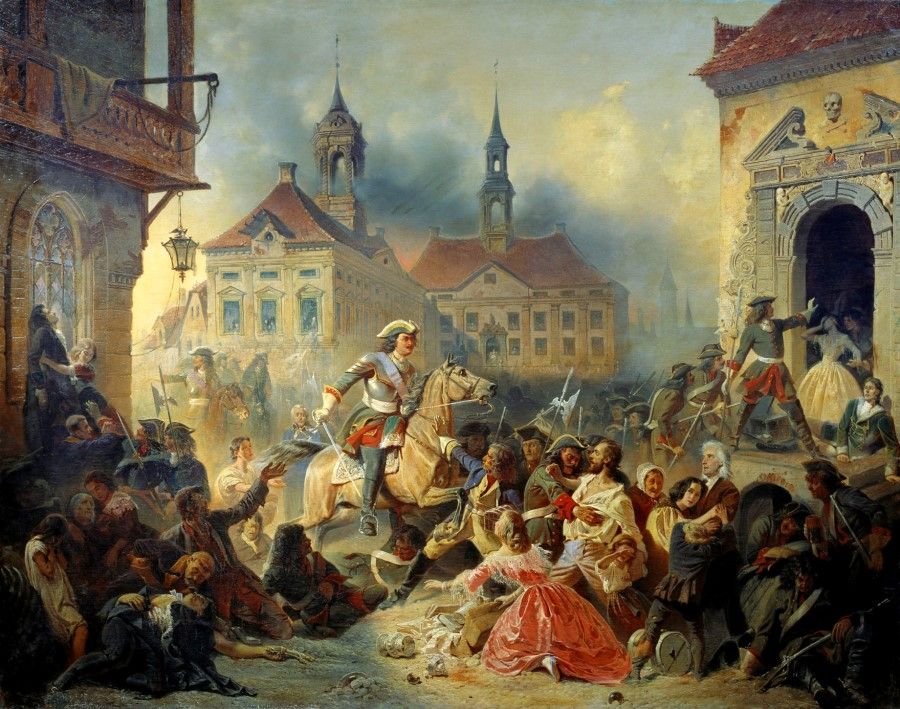
While Russia learned from the West, it only learned the form, but not the substance, especially in terms of technology. Before the Soviet Union, Russia did not nurture a spirit of commerce, but just kept grabbing and conquering. In the Soviet era, commerce was suppressed even more. One might say the spirit of commerce never existed in Russia's cultural DNA. Even worse, Russia was deeply impacted by Stalinism. One's actions depend on one's thinking and perception, which in turn depends on one's educational background. The same goes for a country and people. Fifty years is enough to change the memory, thinking and perception of a people.
In the 70 years and three generations between 1917 and the dissolution of the Soviet Union, the people went through Stalinist, Soviet-style education that thoroughly changed the memory, thinking and perception of the Russian people, and which continues today on a major scale. One can understand why Putin was particularly popular when Russia attacked Georgia in 2008 and Crimea in 2014. This surge in popularity might be Putin's personal glory, but a sorrow for Russia. If Russia wants real change, it has to break through its mental block and embark on a thorough "age of enlightenment" or new cultural movement.
One might say the Russian empire is the modern version of the Mongol empire.
Rise and fall of Mongol-Russian empire
So, how did such a unique Mongol-Russian style empire come about?
First, the ability to quickly gather violence of scale. In ancient times, there was almost no difference in technology, and manpower was easily turned into military power. The rise of Mongolia and Russia are classic examples.
Second, an environment with little justice. In the ancient world, looting, killing and conquest were common, which lowered the ethical cost of Mongolia and Russia conquering other countries. From the modern era to the Second World War, Russia (and the Soviet Union) were violent.
... technology is the most important combat force, and it is difficult for a low-tech country to quickly get advanced technology and become a sophisticated fighting force.
Third, production of low-tech weapons is less systematic and complex, and can be done through national planning. It was less difficult to produce weapons in ancient times - little needs to be said - and the Soviet-era planned economy allowed national strength to focus on industrialisation and mechanisation, with no need for a complex, systematic ecosystem.
But today, the conditions above no longer exist. First, in this high-tech era, technology is the most important combat force, and it is difficult for a low-tech country to quickly get advanced technology and become a sophisticated fighting force.
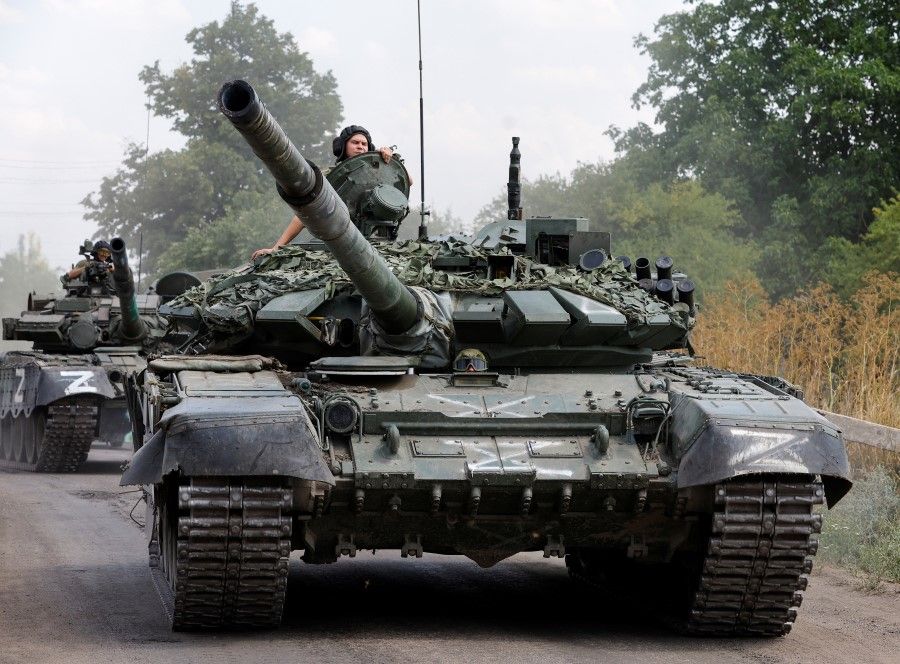
Second, right now there are more and more ethical limits on violence. If a country conquers and pillages through unruly violence, not only will it be ethically censured by the international community, it will come under various sanctions that will affect its military, economic and technological development. This is borne out by the current sanctions by the international community against Russia.
Besides, the weakness of the planned economy is that the government does the purchasing and distribution rather than the market, leading to a lack of necessary competition and in turn, not enough innovation. As technology becomes more advanced and complex, the industrial chain and industrial ecosystem also become more complex, and a planned economy cannot adapt to modern industry and commerce with its advanced technology and strong competition.
No longer fit for a changed world
Looking back at the Gulf War of 1991, even though the Soviet Union was not yet dissolved, there was already an arms gap between the US and the Soviet Union. After the Soviet dissolution, while it looked like Russia had turned democratic, the limits of historical habits and cultural DNA did not lead to a good commercial and industrial ecosystem, and Russian-made products were practically unseen on the international market, which resulted in Russia lacking the capital and motivation necessary for sustained development and innovation.
One more point: the degree of difficulty in gathering intelligence is very different now as compared with the old days. Before, it was very easy to uncover someone infiltrating the enemy, particularly that of a different ethnic community. It was already difficult for different communities to understand one another, much less get military intelligence from each other. This helped the Mongol-Russia empire to mask its strength and to rise up.
... modern technology and the international ethical environment led to the inevitable death of the Mongol-Russian style empire, while similar empires will no longer come back.
But today, it is not easy to hide a country's strength. While it is still difficult to gather top secret technology and intelligence, it is not difficult to get a read of the basic situation with satellites and other means of surveillance. Global interaction has created the right conditions for infiltration and information transfer, and from end products, one can infer the technology behind it.
For instance, ordinary people can tell that the US and Germany have robust technology through their products. This means that today, dominant countries can more promptly get a grasp of developments in emerging countries, and when they discover a threat, they can more promptly and accurately contain and hit out at emerging countries and block their rise, which makes it increasingly difficult for emerging countries to come up.
In short, modern technology and the international ethical environment led to the inevitable death of the Mongol-Russian style empire, while similar empires will no longer come back.
